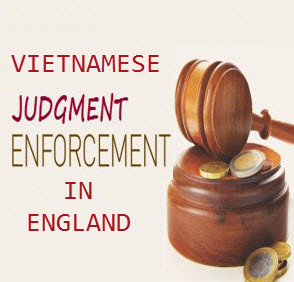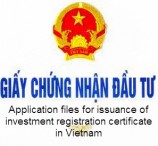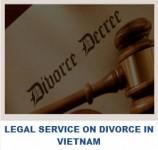Enforcing a Vietnamese judgment in England
How to enforce a Vietnamese judgment in England
Post date: 05-04-2016
3,851 view(s)

Enforcing a Vietnamese judgment in England
If you have obtained a Vietnamese judgment or court order, you may wish to enforce it in England because your debtor has assets there or is located there. Methods of enforcing a foreign judgment In England depend largely on the country or state of its origin and the nature of the judgment or order.
Countries can be split into one or more of four categories which, in descending order of ease and convenience, are:
1. Countries to which the European Enforcement Order (EEO) Regulation applies;
2. Countries which have signed the Brussels Regulation or the Lugano Convention;
3. Countries with which the UK has bilateral enforcement conventions in place;
4. Countries for which none of the above apply - notably the USA, Japan, China and Vietnam
Vietnam is a country which is not subject to any foresaid conventions must be applied the common law.
If Vietnam does not fall under any of the above schemes, you will have to start fresh legal proceedings in England to enforce a Vietnamese judgment. In effect, you will be suing on the judgment as a debt. You may have to serve the claim outside the jurisdiction, in which case specific rules apply.
Unless, for example, a fraud is alleged there should be no need to re-examine the merits of the case at court so it will often be possible to obtain summary judgment. This is a procedural device allowing the speedy and early hearing of a claim without the need for a trial. Such applications are normally successful and are largely a formality.
However, in some situations the judgment debtor may have a credible challenge to the recognition or enforcement of the original judgment. For example, the judgment must have been given by a court regarded under English law as competent to do so. Note that it does not matter that the foreign court had jurisdiction according to its own law - what matters is that it had jurisdiction according to the rules of English private international law. The debtor must therefore have either been present within the jurisdiction of the foreign court or submitted to its jurisdiction, by voluntary appearance or by contract.
A foreign judgment can only be enforced if it is for a definite sum of money. The England court will not enforce judgments for taxes or penalties, such as fines - this means that USA-style punitive damages will not be recoverable.
Vietnamese Judgement must be final and conclusive, not provisional. There is a general presumption that a Vietnamese judgment is conclusive but a debtor may seek to challenge it on various grounds, including that it was obtained by fraud or in proceedings which were contrary to natural or substantial justice. The debtor will have to be able to prove these grounds.
Any more information about enforcement of Vietnamese judgment in England, please contact with us.
Lawyervn.net – Vietnamese Attorneys














Send your comment